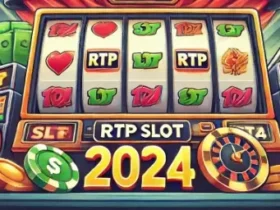The Gibraltar Regulatory Authority (GRA) was founded in October 2000 by the Gibraltar Regulatory Act. The GRA is the legislative agency in charge of regulating electronic communications in the territory.
This covers transmissions of telecommunications, radio communications, and broadcasting. The GRA is the national supervisory and regulatory authority for these industries. These areas are supervised and regulated in accordance with European Union law that has been translated into national law.
Since its creation, the GRA has seen its duties expanded to include data protection and, for a time, gambling.
A Brief History of Gibraltar Regulatory Authority
The 2008 crisis damaged several European nations and ushered in an era of austerity, but Gibraltar defied the trend spectacularly, with one of Europe’s fastest growing economies.
The British Overseas Territory, lying near the Mediterranean’s entrance and to the south of the Spanish province of Andalucia, has been dubbed a “virtual Las Vegas.”
Because of its low tax arrangements, several online gaming businesses have relocated all or part of their internet assets to the Rock, and the industry now employs 12% of Gibraltar’s 30,000 people, ranging from server managers to live casino dealers.
Gibraltar has been engaged in a dispute with the United Kingdom about the specifics and legalities of the point of consumption tax.
The UK government changed gaming regulations in December 2014 by taxing corporations depending on the country where their clients are situated, rather than the country where the company or its servers are located.
The point of consumption tax is intended to assist the UK government in repatriating $300 million each year.
The Gibraltar Betting and Gaming Association (GBGA), an organization that defends the interests of Gibraltar-based online gaming enterprises, is opposing the revisions.
It is not only hesitant to pay the 15% tax, but it is also disputing the fact that, under the new laws, operators must seek a separate licensing from the UK Gambling Commission.
Gibraltar Reliability
It has long set the standards for online gaming safety and player protection, even going so far as to sue the UK government in European Court because it feared the new rules would harm player safety as well as its own economy.
The GRA has proposed a number of solutions to safeguard not only players, but also underage users who may be attempting to access online gaming unlawfully or without authorisation, as part of the continuing discussion over EU online gaming legislation.
Popularity of Gibraltar
Gibraltar is home to a number of well-known game creators, online casinos, situs pkv games and bookmakers, as well as four land-based casinos: the Casino Admiral, Sunborn Super Yacht, Rock Hotel and Casino, and Stakis Casino.
The casinos are packed with slot machines, with only a few table games, such as Roulette, Blackjack, and local poker variations, available.
Most of Gibraltar’s online gaming businesses like Mansion Casino, offer poker tournaments on Gibraltar-based servers, and a few of casinos host local tournaments and events, with the Sunborn able to change its opulent ballroom into a 20-table gaming hall.
KPMG’s annual eGaming Summit was also held aboard the 5-star floating hotel, with over 230 delegates from the global gaming business in attendance.
The last of Gibraltar Regulatory Authority, it has been granting gaming licenses since 1998, and the process is presently overseen by the Gibraltar Regulatory Authority (GRA), which was established by the Gambling Commissioner in 2005.
The area quickly gained a good reputation for hosting online gaming enterprises, thanks to the ideal mix of low tax, no VAT charges, and a large workforce. The GRA only offers a single license that covers all activities for a single year.
This yearly licence costs $2000, with a 1% gaming tax rate maximum at $425,000 up to $42.5 million.










